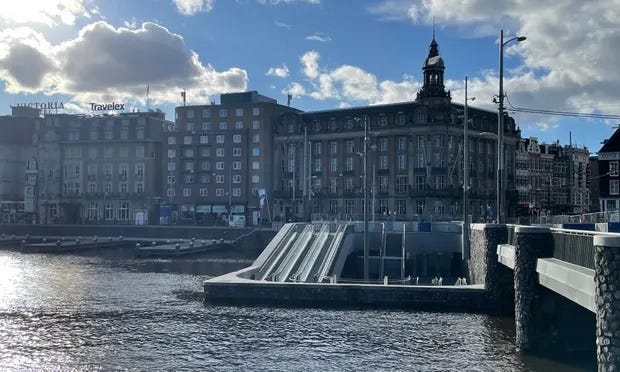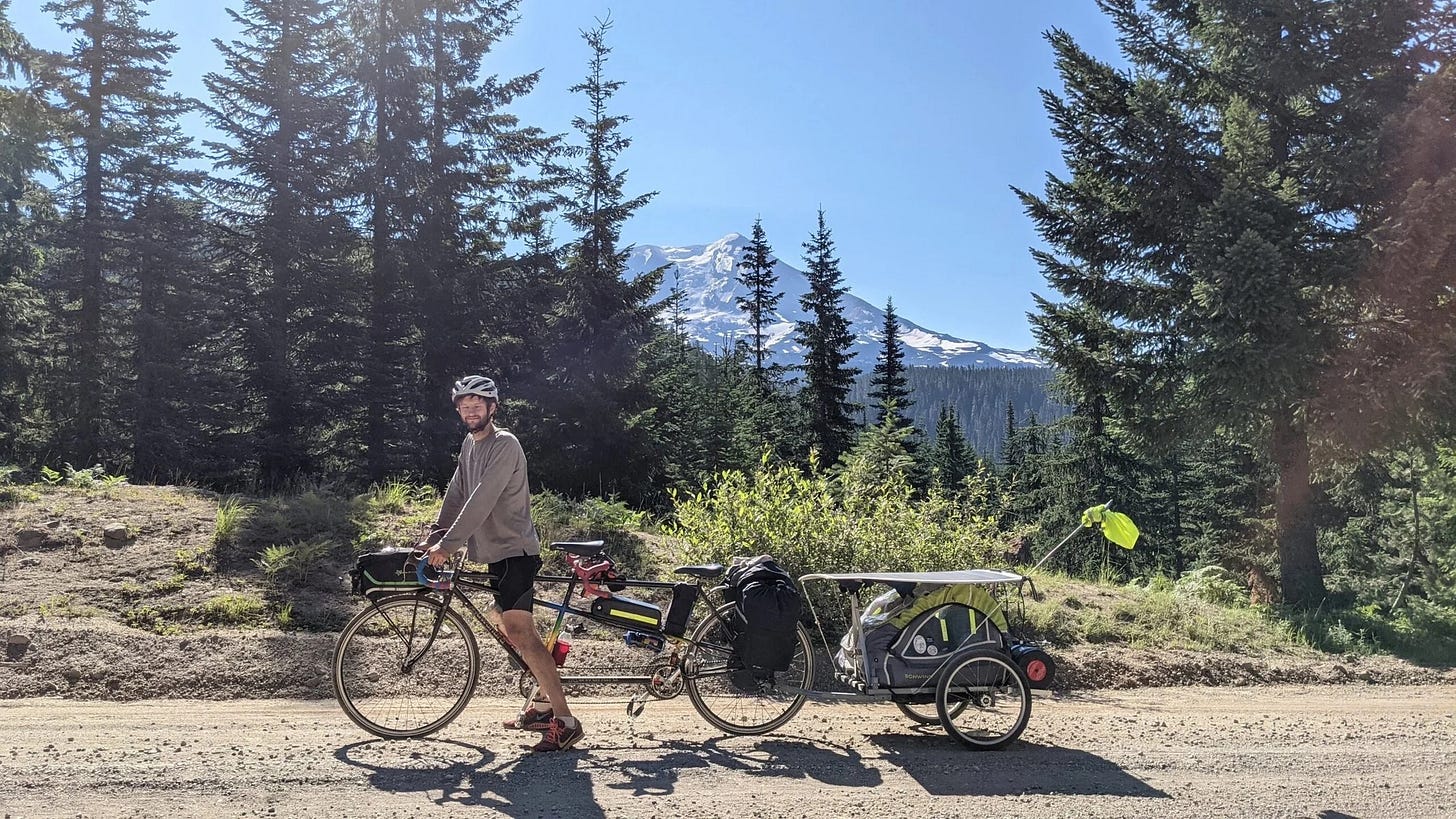I wanted to start off 2024 with something cheery and uplifting. Having digressed last week, the environment is back on the agenda, but with a distinct lack of woe.
Before I get started, I wanted to thank several readers who offered some suggestions for new topics this year.
The Amazon rainforest was one, a subject I'll happily come back to later. It's a big bellwether topic which I've been avoiding, largely because of the depressingly lack of good news at the hands of Brazil's now ex president, Jay Bolsonaro.
That bad news story, for what it’s worth, started in 2019, when Bolsonaro, a far right-wing leader came to power. He presided over record levels of deforestation in the Amazon basin. Laws meant to protect the forest from land-grabbers, miners and loggers were loosened, effectively creating a free for all against the forest and the indigenous people living there.
This ruthless policy of extraction and demolition made Brazil a pariah on the world stage and Bolsonaro, the planet's most dangerous climate change denier.
But that's old news, he's gone, and I no longer have an excuse. There must be good things happening in Brazil now?
The ex-president has since fled the country, becoming a tourist attraction for some Brazilians at least, who tie in a day at Disney World with a visit to their beloved ex leader in Orlando, Florida. He’s living in some well wishers holiday rental.
Knowing that he’s now a curiosity with no power to do further damage is some form of karma.
I try and balance any climate story, avoiding copiously thick, treacly layers of doom and gloom. In a 5 minute read, there's only so much oil industry self interest and political skulduggery anyone should have to put up with.

One place I occasionally look for uplifting stories is Reasons to be Cheerful. During the holiday, they neatly packaged up 177 good news stories about the world getting a little better in 2023 and dropped it in my inbox. Thank you.
While it's impossible to mention all of them, here are a few which caught my eye.
80% of new cars sold in Norway are now electric. Compare that to around 20% in the UK where government policy no longer considers financial support relevant.

More than 700 books are banned in 16 districts of Texas, with a plethora of new laws going through the state legislature to further ban books on sexual orientation and gender identity. How refreshing to hear that El Paso has a banned book section in every public library.
Canadian forests badly scarred through wildfires are being replanted with the help of drones. They're able to shoot five seed pods every second at a strong enough velocity to embed into the soil.
The French government set up a €154 million fund in October for clothing repairs. It's paid for by taxes on manufacturers and retailers in France's fashion industry. Anyone who has their shoes resoled or clothing repaired will receive a repair bonus of between €6-25. The aim is to encourage the public to wear their clothes and shoes for longer and combat fast fashion trends.
There was a recurring theme as I browsed through the stories - bicycles. The common thread was community spirit and I soon found myself shooting off down too many rabbit holes, which led to some heartwarming discoveries.
Maybe it's because I'm struggling to ride one at the moment that this subject appealed as much as it did?
Before I delve deeper, one extraordinary engineering solution for bicycle parking opened next door to Amsterdam's central station last year which definitely deserves a mention. The result of a 4 year, €60m project to clear up a rusty pile of bikes left in haste, has been replaced with an underwater garage for 7,000 bicycles. This clean safe parking space below the pleasure boats of Amsterdam means bikes can be left free for the first 24 hours before paying a token charge of €1.35 for every day thereafter.
In Chicago, a company called Working Bikes, processes and finds new homes for 11,000 bikes every year. They run a collection service, picking up unused and abandoned bikes, many destined for land fill. The bikes are repaired and serviced by a group of volunteers before they are sent on to their new homes. Two-thirds are shipped to Africa and Central America, especially the sturdier bikes with knobbly tyres that will be more suitable for the rougher dirt roads.
The racing bikes and city hybrids are given away for a token sum or even free to the most deserving cases in the local area, like the Chicago nurse who worked in Accident & Emergency (ER in Chicago). After her bicycle was stolen during the pandemic, she didn't want to use public transport for fear of infection. Still needing to get to work, Working Bikes stepped in to help.
Surely something like this must already exist in the UK?
Figures for discarded bikes in the UK are not readily available, although an estimated 27,500 bicycles are dumped in London every year. 34% of British adults have at least one bike doing nothing in the garage or shed, which certainly includes me.
Cycle recycling schemes are thriving in the UK. Like the US, schemes take in unwanted bicycles, whether from individuals, council recycling centres, even stolen bikes, recovered by the police which can't be returned to their owners.
The Bike Project in London and Birmingham is a charity which refurbishes bicycles before donating them to asylum seekers and refugees.
The Bike Network in Plymouth set-up by Adam Froggatt after recovering from bowel cancer and wanting others to appreciate the same health benefits he got from cycling, provides a similar service, giving upgraded bicycles to anyone in need.
There are even innovative prison programmes run by Life Cycle UK and Recycle Your Cycle where prisoners are offered the chance to gain a City & Guilds certificate in cycle mechanics. The repaired bikes are sold at affordable prices raising money for charities across the UK.
When Claire and Will Stedden got married in their home state of Oregon, they planned a celebratory trip to New Zealand. That changed when Claire, a science writer discovered that the CO2 emissions for one flight to New Zealand was almost 1.5 times more than the emissions considered sustainable for one person in a year.
They changed their plans and went on a year long bicycle trip instead exploring the Oregon coast before cycling down to Southern California. A train ride then took them to Tucson, Arizona, where they explored New Mexico.
They were so enthused with their trip, that they started Solarpunk Travel, a free online community for bicycle enthusiasts. It's a knowledge base for how to build a solar e-bike and what are the best cycle routes. It's also where I discovered Warmshowers.
While their web site could be a bit more upfront for a novice researcher, what they offer is incredibly useful for touring cyclists. Their platform provides the functionality for reciprocal hospitality for cyclists and hosts, a community which has grown to 185,000 users around the world in the last 10 years. If you're thinking of a budget conscious, touring holiday by bicycle, looking for places to stay, this could prove very helpful at least for part of the journey.








